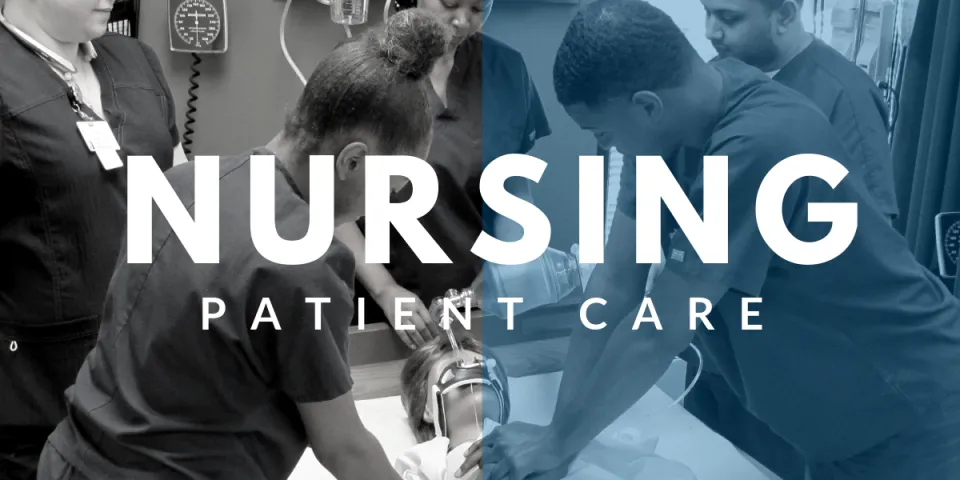Latest
Why Nurses are Vital to Quality Patient Care
Jun 5, 2019

There’s a reason nurses are known as the “heart of healthcare.” According to the American Association of Colleges of Nursing (AACN), registered nurses (RNs) make up the highest percentage of the healthcare workforce in the United States. In fact, there are more than three times as many RNs in the United States as physicians.
The nursing workforce continues to play a key role in helping healthcare organizations meet the needs of a growing patient population and expand access to quality healthcare services.
Here are five ways nurses play a vital role in patient care:
1. Taking a holistic approach to care
Nurses are trained to treat the whole patient, not just the immediate injury or illness. They look beyond the symptoms to establish the root of the problem so that they can ensure a patient receives adequate treatment and the resources they need to manage their care outside the hospital.
As the focus of patient care shifts from acute care to prevention models, nurse education is evolving as well. Today, many healthcare organizations are encouraging their nursing staff to earn a bachelor of science in nursing (BSN) to gain vital leadership skills and deepen their experience with evidence-based practice and community-based care. In fact, hospitals aspiring to Magnet Status are more likely to hire BSN-prepared nurses, as their depth and quality of patient care experience have been shown to improve patient outcomes.
2. Establishing open lines of communication with the patient
With an emphasis on patient satisfaction at an all-time high, cultural competence is key. Nurses need to be able to make their patients feel comfortable and create a safe space for honest conversations. Communication and listening are essential skills for building that trust and establishing a rapport with patients.
“Having strong interpersonal skills can help you make your patients feel more at ease. You want to establish an open dialogue with your patients so that you can accurately determine their needs,” explains Herzing University nursing student McKindi Heiman. “Effective communication is important to ensure that everyone, including the patient, understands the plan of care and has all the information they need to make appropriate decisions.”
3. Providing emotional support
Nursing is about more than just helping patients feel better physically. Patients grappling with serious injuries or illnesses might be anxious and worried about how their condition will affect their lives. By lending an ear and being a source of comfort, nurses can help their patients have a more positive healthcare experience.
“Nurses are active listeners and make concerted efforts to really understand their patients’ difficulties and challenges,” says Robin Ihde, injury prevention and outreach education coordinator at Froedtert Hospital in Wisconsin, one of Herzing University’s clinical partners. “They must be their patients’ voice, anticipate their needs and advocate for them when they are unable to do so for themselves,” she adds.
4. Educating patients and their families
Another important aspect of nursing is being able to educate patients and their family members on how they can help care for themselves or their loved one. Nurses can work with individual patients on managing their health and improving general wellness, and can also lead community initiatives to promote health prevention.
“Most of healthcare happens outside of the hospital walls,” says Joan Neave, a clinical nurse educator at Herzing University. “Providing public health education and increasing access to health services in the community ensures a healthier future for everyone.”
5. Empowering others
Nurses can help an organization achieve a higher standard of care by empowering their colleagues and peers to continue their education. A nurse manager, for example, can position others for success by creating an orientation program for new nurses, or regular training exercises to ensure that experienced nurses are up to speed on best patient care practices and techniques.
Experienced nurses can also benefit from continued education, such as an MSN program focused on family nurse practitioner, nursing education, or leadership and administration.
I want to play a larger role in patient care. What are my options?
The nationwide nursing shortage is expected to increase as 500,000 nurses reach retirement age by 2022. In fact, the Bureau of Labor Statistics (BLS) predicts that employment for registered nurses will grow by 6% from 2022-2032.
As more new nurses join the workforce, experienced nurses will have the opportunity to move into specialized roles and leadership positions. Demand for nurse practitioners, for example, is also increasing, with 45% employment growth projected from 2022-2032.
Herzing University offers a variety of nursing pathways that make it possible for you to begin or advance your nursing career, including diploma, associate and bachelor’s degree programs that focus on holistic and evidence-based patient care.
Herzing’s graduate nursing degree programs prepare students to expand their careers and influence the quality of healthcare services at a higher level, perhaps as a member of a hospital’s executive team or a clinical educator helping train new nurses.
Learn More About Our Nursing Programs
Bureau of Labor Statistics (BLS), U.S. Department of Labor, Occupational Employment and Wage Statistics 2023 / Occupational Outlook Handbook 2022. BLS estimates do not represent entry-level wages and/or salaries. Multiple factors, including prior experience, age, geography market in which you want to work and degree field, will affect career outcomes and earnings. Herzing neither represents that its graduates will earn the average salaries calculated by BLS for a particular job nor guarantees that graduation from its program will result in a job, promotion, salary increase or other career growth.
Latest
Recent Blog Posts
Subscribe to our Newsletter
Get the latest news you need to know, from study hacks to interview tips to career advancement. Have it delivered right to your inbox biweekly.








